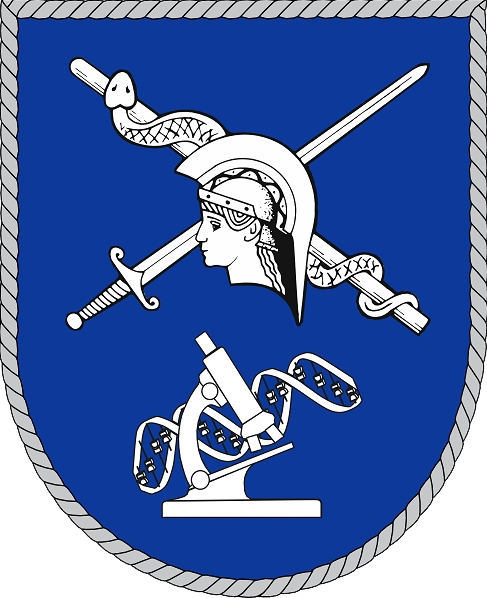Biosecurity Project in Ukraine
Biosafety initiative for zoonotic disease risk management near the EU border
[soon to come]
Aktivitäten
Biosicherheitsprojekt „Aufbau eines vorderasiatischen Netzwerks für biologische Sicherheit und Diagnostik gefährlicher Infektionskrankheiten“
Februar 2022, Georgien
Die gemeinsame Jahresauftaktveranstaltung der Biosicherheitsprojekte Georgien und Ukraine in Tiflis ermöglichte die Vorstellung und Diskussion erzielter Untersuchungsergebnisse sowie die Abstimmung zukünftiger Zusammenarbeiten.
Biosicherheitsprojekt „Aufbau eines vorderasiatischen Netzwerks für biologische Sicherheit und Diagnostik gefährlicher Infektionskrankheiten“
Februar 2022, Georgien
Die gemeinsame Jahresauftaktveranstaltung der Biosicherheitsprojekte Georgien und Ukraine in Tiflis ermöglichte die Vorstellung und Diskussion erzielter Untersuchungsergebnisse sowie die Abstimmung zukünftiger Zusammenarbeiten.
Februar 2022, Georgien
Die gemeinsame Jahresauftaktveranstaltung der Biosicherheitsprojekte Ukraine und Georgien in Tiflis ermöglichte die Vorstellung und Diskussion erzielter Untersuchungsergebnisse sowie die Abstimmung zukünftiger Zusammenarbeiten.
Februar 2022, Georgien
Die gemeinsame Jahresauftaktveranstaltung der Biosicherheitsprojekte Ukraine und Georgien in Tiflis ermöglichte die Vorstellung und Diskussion erzielter Untersuchungsergebnisse sowie die Abstimmung zukünftiger Zusammenarbeiten.
Februar 2022, Georgien
Die gemeinsame Jahresauftaktveranstaltung der Biosicherheitsprojekte Ukraine und Georgien in Tiflis ermöglichte die Vorstellung und Diskussion erzielter Untersuchungsergebnisse sowie die Abstimmung zukünftiger Zusammenarbeiten.
Dezember 2021, Deutschland
November 2021, Deutschland/Ukraine/Georgien/Kasachstan
Um den wissenschaftlichen Austausch zu aktuellen zoonotischen Infektionskrankheiten in DEU, GEO, UKR und KAZ zu fördern, organisierte das IMB das virtuelle Symposium Know your Pathogens – Eurasian online Symposium on Biological Health Hazards. Die Schirmherrschaft übernahm der deutsche Botschafter in Tiflis, Herr Knirsch, zusammen mit dem Leiter des Deutschen Biosicherheitsprogramms im Auswärtigen Amt, Herr Tintrup. An der digitalen Veranstaltung nahmen mehr als 75 Fachexpertinnen und -experten aus Deutschland, der Ukraine, Kasachstan, Georgien, Usbekistan und den Niederlanden teil.
September 2021, Deutschland
September 2021, Ukraine
August 2021, Ukraine
Juli 2021, Ukraine
Das deutsche Projektteam führte koordinative Gespräche mit der Leitung des ukrainischen Public Health Center in Kiew, um erste Schritte für die Kooperation abzustimmen. Des Weiteren wurde der wissenschaftliche Nachwuchs in Charkiw für die Biosurveillance-Studien in der Anwendung von Lebendmausefallen geschult.
Juni 2021, Ukraine
Für eine Biosurveillance-Studie zum Vorkommen endemischer Krankheitserreger sammelte der wissenschaftliche Nachwuch in einem Waldgebiet in der Nähe von Charkiw Proben. Anschließend fanden Schulungen zur Probenaufbereitung und Probenanalyse statt.
April 2021, Deutschland/Ukraine/Georgien
Zusammen mit dem georgischen Biosicherheitsprojekt fand im April ein virtuelles Training zur Validierung neuentwickelter Methoden zur Diagnostik hochinfektiöser Erreger statt. Durch die gemeinsame Teilnahme von Wissenschaftlerinnen und Wissenschaftlern aus der Ukraine, Georgien und Deutschland wurde der internationale Austausch und die Vernetzung im Rahmen des Deutschen Biosicherheitsprogramms gestärkt.
Februar/März 2020, Ukraine
Die ukrainischen Nachwuchswissenschaftlerinnen des Biosicherheitsprojektes sammeln Probenmaterial für die Biosurveillance-Studien zur Afrikanischen Schweinepest und zur Tularämie.
Februar 2020, Ukraine
Auftaktbesuch in Charkiw zum Start der dritten Förderphase. Mit der Unterzeichnung einer Absichtserklärung besiegelten die Nationale Medizinische Universität Charkiw (KhNMU) und das IMB ihre zukünftige Zusammenarbeit.
Dezember 2019, Ukraine
November 2019, Georgien
Juni 2019, Deutschland
Juni 2019, Deutschland
Dezember 2018, Ukraine
November 2018, Ukraine
Oktober 2018, Deutschland
Oktober 2018, Ukraine
September 2018, Ukraine
April 2018, Ukraine
Teilnahme der ukrainischen Promovierenden am BTRP Ukraine Regional One Health Research Symposium 2018 in Kiew mit Posterpräsentationen der aktuellen Forschungsdaten ihrer Forschungsprojekte. Den Preis für das beste Poster erhielt die ukrainische Nachwuchswissenschaftlerin, die erst seit Mitte 2017 im Biosicherheitsprojekt mitarbeitet.

